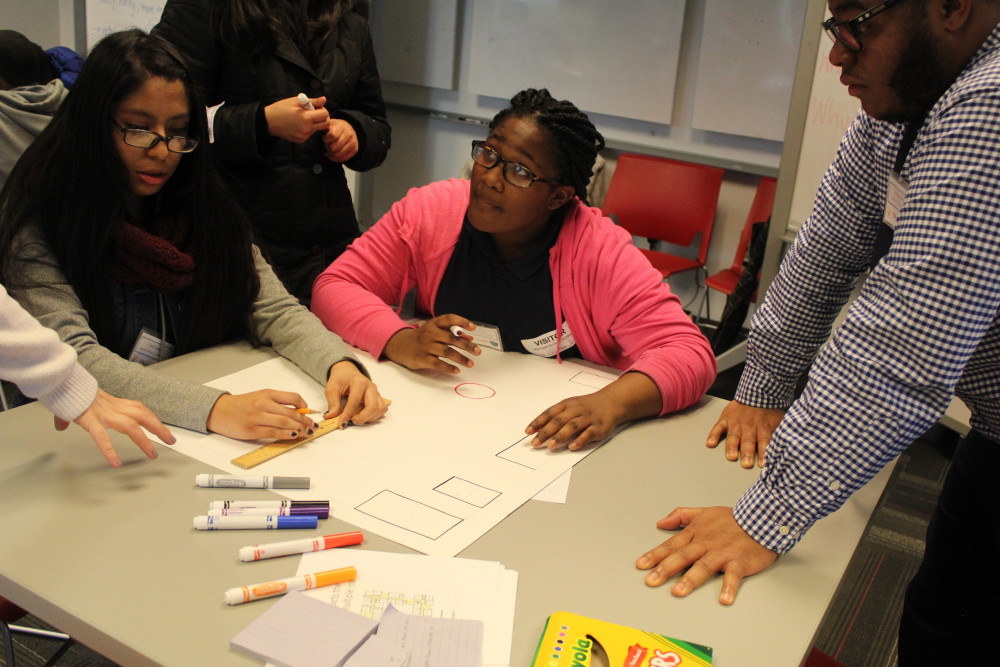How can government technology employees interact with middle school students in a way that is meaningful for everyone?
That was the challenge faced by the Office of Innovation & Technology (OIT), along with the Mayor’s Office of Education, as we collaboratively designed and implemented a STEM mentoring program for ten middle school students from the Chester A. Arthur School in South Philadelphia.
As part of a national initiative called US2020, with the stated goal of matching one million STEM mentors with students by the year 2020, earlier this year our two offices agreed to host students for an eight-week series of sessions about technology. As we reflect on the experience, we believe the students gained a lot but that we probably learned just as much.
We’ve identified three keys that made our program successful as a pilot effort and one that can be replicated in city government and other institutions as well:
1. We developed a program, not just an event.
Many of us have participated in a “career day.” While valuable, these single sessions don’t provide enough time or continuity for students to become comfortable working with one another or their mentors. It’s also hard in one session to create any sort of meaningful project capable of synthesizing information and experiences.
Because our program included an eight-week sequence of classes immersing students in the work of different divisions within OIT, we were able to connect these individual sessions to an overall goal: designing a “cool school.” Additionally, students and mentors developed professional familiarity with one another and by the end of the program worked together easily on their “cool school” project. Although it requires more time and effort to develop a series of sessions connected to a common theme, the level of learning increases significantly.
2. Our mentors remained interested and involved for the duration of the program.
Those of us who organized the program curriculum were pleasantly surprised at how interested and participatory our mentors remained throughout. In addition to developing and teaching their individual lessons, many mentors attended sessions led by others and participated as facilitators for the day’s activity. Because students saw many of the same faces each week, we think they could sense the mentors’ investment in the program. As a result, mentors earned the trust of the students and established productive, working relationships with them. We were really impressed that high-level employees directing multiple initiatives could show that level of dedication.
3. Our collaboration succeeded because all parties committed themselves equally.
Organizing and implementing our mentoring program required three equally invested partners: the Office of Innovation & Technology, the Mayor’s Office of Education and the Chester A. Arthur School. The Office of Innovation & Technology identified mentors and developed lesson plans, the Mayor’s Office of Education created an overall framework for the program and the school selected students and ensured they showed up at the Innovation Lab each week. Each partner also designated one or two individuals responsible for managing the program, and those partners communicated consistently and proactively with one another. Because of these effective working relationships among partners, we were able to handle the logistics of getting ten middle school students to show up each week at the same place and the same time.
Join our growing Slack community
Join 5,000 tech professionals and entrepreneurs in our community Slack today!
Donate to the Journalism Fund
Your support powers our independent journalism. Unlike most business-media outlets, we don’t have a paywall. Instead, we count on your personal and organizational contributions.

Traditional PPE isn’t made for everyone. Here’s how one startup is fixing it.

Comcast introduces ultra-low lag Xfinity internet that boosts experiences with Meta, NVIDIA and Valve

This Canadian startup with a network of 100,000 is helping international college students find their careers

